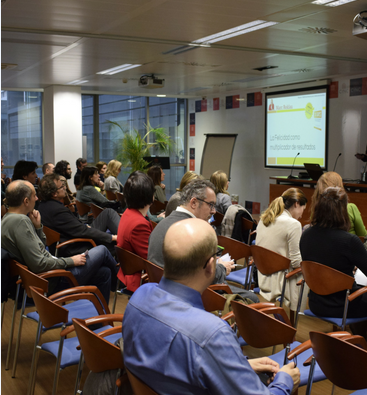Philosopher Karl Popper once proposed that life is a continuous process of solving problems. This idea, central to his philosophy, suggests that we face challenges, mistakes, and difficulties as a means of evolving and learning. This perspective applies not only to science but also to personal dilemmas. In the context of emotional abuse, it can provide valuable tools to understand and overcome painful situations.
Emotional abuse leaves deep scars, and recognizing it as a "problem to solve" can be the first step to addressing it. This article examines how Popper’s philosophy allows us to see life’s challenges —even emotional abuse— as obstacles that, when confronted with the right tools, can lead to growth and genuine resilience. Below, we explore Popper’s key concepts, the impact of emotional abuse, and strategies to address it based on Popper's approach of questioning, learning, and evolving.
1. Karl Popper: Knowledge and Life as Problem Solving
Karl Popper argued that knowledge develops through “falsification” and error correction. Instead of seeking absolute truths, we continually strive to overcome problems and correct mistakes. This approach applies not only to science but to life in general. According to Popper, there is no perfection or final answers; rather, we constantly face challenges and learn from them.
On a personal level, Popper encourages us to question our beliefs, decisions, and experiences, especially in difficult contexts. By adopting this perspective, we can view challenges as opportunities for personal development, embracing a growth mindset where each obstacle becomes a chance for learning and overcoming.
2. Emotional Abuse: Understanding its Nature as a Problem
Emotional abuse involves patterns of manipulation, control, and psychological degradation that undermine self-esteem and emotional independence. This type of abuse, often invisible, has a profound and lasting impact on mental health. Victims may experience anxiety, depression, isolation, and a sense of helplessness that makes it difficult to recognize their situation and seek a way out.
Viewing emotional abuse through Popper's lens means considering it a "problem to solve." This does not minimize the pain or complexity of the situation but suggests an active stance toward adversity. Popper’s perspective encourages us to unravel the problem, understand its patterns, and begin to make decisions to change the dynamic.
3. Identifying the Problem: Recognizing Abuse
The first step in problem-solving, according to Popper’s philosophy, is recognizing the problem. Emotional abuse is often difficult to identify because it manifests through subtle and manipulative behaviors like gaslighting (making the victim doubt their perception of reality), constant devaluation, silent treatment, and persistent criticism.
The victim, by adopting Popper’s approach, might ask: Is this relationship balanced? Is this behavior healthy or harmful to me? Recognizing emotional abuse as a problem is crucial for addressing it. Without this clarity, it’s easy to remain trapped in a cycle of dependency and self-blame. The ability to question the reality of the relationship, inspired by Popper’s critical thinking, is the first step toward liberation.
4. Analyzing Imposed Beliefs: Dismantling Manipulation
One strategy used by abusers is imposing beliefs that undermine self-esteem and create dependency. Popper’s approach encourages us to question these beliefs. Asking questions like, Is it true that I’m worthless without this person? Do I truly depend on their validation? helps identify ideas imposed by the abuser and dismantle manipulation.
Questioning these beliefs is essential for breaking down the dynamic of emotional control. This process involves reconstructing one’s identity and values, separating what one truly thinks and feels from what the abuser tries to impose. By identifying and challenging these beliefs, the victim can begin to reclaim emotional autonomy.
5. Strategies for Addressing Emotional Abuse through Problem-Solving
Once the problem is identified, and imposed beliefs are questioned, it’s time to seek solutions. Inspired by Popper’s philosophy, here are some specific strategies:
Seek External Support: Problem-solving does not happen in isolation. Friends, family, and therapists can provide essential perspectives and support. Sharing experiences helps validate the victim’s feelings and allows them to view the situation from an outside perspective.
Set Clear Boundaries: Learning to set and maintain boundaries is one of the most effective ways to protect one’s emotional integrity. This means identifying unacceptable behaviors and firmly communicating these expectations to the abuser. Boundaries also involve making clear decisions about how much access this person has to the victim’s emotional life.
Cut Contact, if Necessary: In many cases, the only way to break the cycle of abuse is to end the relationship. Although this can be a painful decision, cutting contact allows the victim to have space to heal and rebuild their life.
Rebuild Self-Esteem: The victim’s self-image is often deeply damaged after emotional abuse. Activities like cognitive-behavioral therapy, skill development, and self-compassion are tools that help restore a positive and realistic self-image.
Accept the Learning Process: Popper asserted that problems don’t disappear immediately; they require an attitude of continuous adaptation and improvement. Overcoming emotional abuse is not instant; it involves cycles of learning, setbacks, and progress. Embracing this process makes recovery more authentic and less frustrating.
6. Recovery and Resilience: The Popperian Philosophy in Rebuilding
The recovery process after emotional abuse is long and complex, but Popper’s perspective helps see each step as part of continuous growth. By questioning, learning, and evolving, the victim not only overcomes the abuse but develops resilience that will serve them in facing future challenges.
Rebuilding includes revaluing autonomy, identifying new goals and aspirations, and strengthening a sense of identity. Resilience does not mean ignoring the pain but learning from it, overcoming it, and transforming it into strength. Popper reminds us that, although the process is continuous, each problem solved makes us wiser and more capable of facing life with greater resources.
7. Conclusion: Life as a Process of Overcoming and Growth
Karl Popper taught that life is a continuous process of problem-solving. In the context of emotional abuse, this philosophy provides a guide to face, understand, and overcome pain. Identifying abuse, questioning imposed beliefs, and seeking practical solutions are essential steps to break free and begin to heal.
Seeing emotional abuse as a problem to solve does not downplay its impact; rather, it gives the victim the power to regain control of their life. Through learning and overcoming each obstacle, it is not only possible to escape abuse but also to rebuild a full and balanced life enriched with the lessons of a difficult experience.





